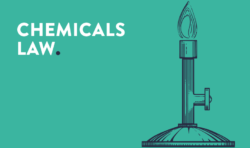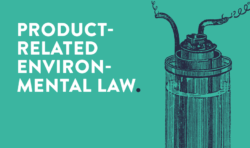At the same time, the relevant implementing provisions of the German Mineral Resources Due Diligence Act (Mineralische-Rohstoffe-Sorgfaltspflichten-Gesetz – MinRohSorgG) came into force in Germany. The core aim of both pieces of legislation is to prevent the financing of armed conflicts and to prevent (serious) human rights violations.
Until now, there has been no binding regulation in this regard in the EU. However, the U.S. has had such regulations for some years in the form of Art. 1502 of the Dodd-Frank Act (Dodd-Frank Act). Even though the direction of impact is identical, there are serious differences that must be taken into account during implementation.
I. Scope of application of Regulation (EU) 2017/821
According to Art. 2 lit. l) Regulation (EU) 2017/821, the personal scope of application includes (only) the “Union importer“, i.e. “a natural or legal person who declares minerals or metals for release for free circulation within the meaning of Article 201 of Regulation (EU) No 952/2013 […] or a natural or legal person on whose behalf such a declaration is made […]”. In contrast, companies that only import the aforementioned metals into the EU in semi-finished and finished products or are in the supply chain after the Union importer are generally not directly affected by Regulation (EU) 2017/821. In contrast, the requirements of the Dodd-Frank Act cover much more extensively all companies listed in the U.S. (irrespective of the place of their registered office or production) for which the regulated conflict minerals are necessary for the manufacture or function of their products.
The minerals tin, tantalum, tungsten and gold (so-called 3TG minerals) listed in Annex I of Regulation (EU) 2017/821 and certain metals made of and containing the aforementioned minerals are covered by the material scope of application. This is consistent with the scope of the Dodd-Frank Act.
The most difficult to determine in this context is the territorial scope of application, understood here as those countries and regions that are considered “conflict and high risk areas” under Art. 2(f) Regulation 2017/821. This refers to “areas [where] armed conflict is ongoing or post-conflict fragility, areas where governance and security are weak or non-existent, for example failed states, and where widespread and systematic violations of international law, including human rights abuses, are taking place.” As this is hardly determinable by an individual company on its own, there are several guidance documents provided under Regulation (EU) 2017/821 in this regard:
- Commission Recommendation (EU) 2018/1149 of 10 August 2018 on non-binding guidelines for the identification of conflict-affected and high-risk areas and other supply chain risks under Regulation (EU) 2017/821 of the European Parliament and of the Council
- Non-binding and online EU Commission list of current conflict and high risk areas (CAHARs)
In contrast, the Dodd-Frank Act only covers the Democratic Republic of Congo and its neighboring states (Angola, Burundi, Republic of Congo, Rwanda, Zambia, South Sudan, Tanzania, Uganda, Central African Republic) as conflict regions in a territorially limited and conclusively defined manner.
II. Due diligence obligations
If Regulation (EU) 2017/821 is applicable in an individual case, the respective Union importer concerned shall implement a due diligence process consisting of five steps, which shall subsequently be applied, updated and adapted actively, dynamically and situationally. The five steps are formulated in close accordance with the OECD’s “Due Diligence Guidance for Responsible supply Chains of Minerals from Conflict-Affected and High-Risk Area“, which are also to be used as a basis for the performance of due diligence according to the European Regulation. The five steps can be summarized as follows:
- introduction and publication of resilient corporate governance strategies (management system), including the obtaining of information on the supply chains that may be affected
- identification and assessment of risks in the supply chain by evaluating the obtained information
- design and implementation of a risk mitigation strategy, if risks have indeed been identified in the second step
- carry out an independent audit of due diligence compliance – not required if it can be demonstrated that all smelters and refiners in the relevant supply chain comply with the requirements of Regulation (EU) 2017/821
- certain publications on the fulfillment of due diligence requirements in the supply chain and notification requirements to the Federal Institute for Geosciences and Natural Resources (BGR).
To facilitate compliance with these requirements, it is possible to voluntarily join a supply chain due diligence system recognized by the EU Commission in accordance with Art. 8 Regulation (EU) 2017/821 (in conjunction with Delegated Regulation (EU) 2019/429), which fulfills equivalent requirements as from the said Regulation.
In this context, it should be noted that Regulation (EU) 2017/821 does not contain a ban on the use of minerals and metals from conflict and high-risk areas, even if corresponding risks have been identified. However, in such a case, the risk mitigation strategies mentioned under Step 3 must be introduced and implemented.
III. Conclusion
While it is likely that a large number of the approximately 1,000 affected Union importers already have relevant experience with the Dodd-Frank Act, the requirement to independently designate conflict and high risk areas adds an unfamiliar and entirely new element.
Due to the newly introduced disclosure requirements, it is to be expected that downstream actors in the supply chain will also become more aware of the issue of conflict minerals and increasingly demand supply chain confirmations from their suppliers in order to avoid own reputational damage. As in many other regulatory areas, it is this market-driven demand for transparency that will increase the pressure on Union importers to implement the new rules.
Finally, it can be assumed that the initial experiences with the implementation of Regulation (EU) 2017/821 will have a significant impact on the design of the legal requirements for due diligence in all supply chains with regard to human rights and environmental impacts, which have been discussed for some time.
Do you have questions about this news or do you want to discuss the news with the author? Please contact: Michael Öttinger






